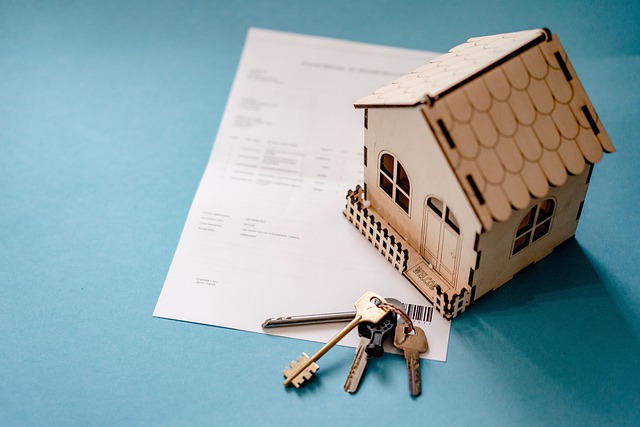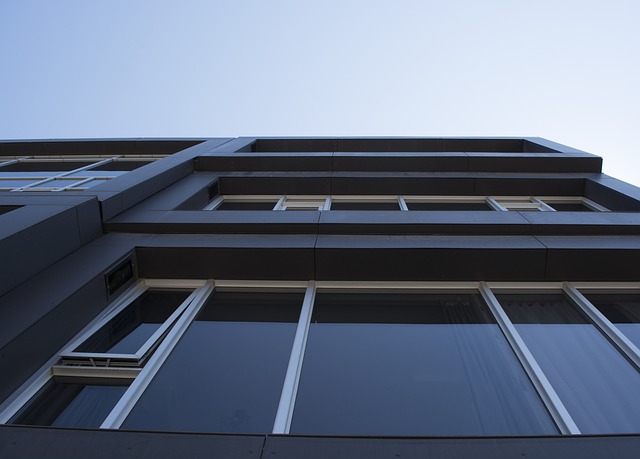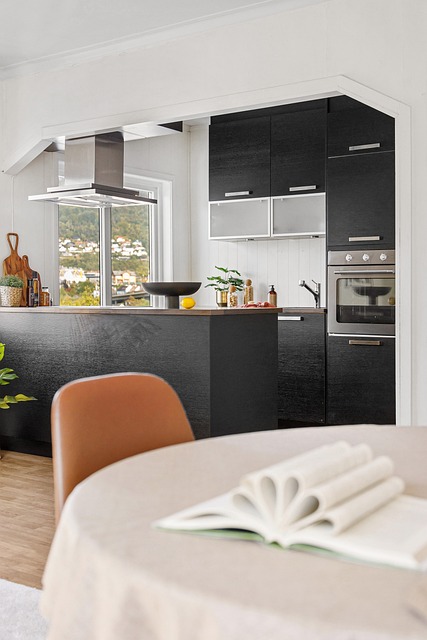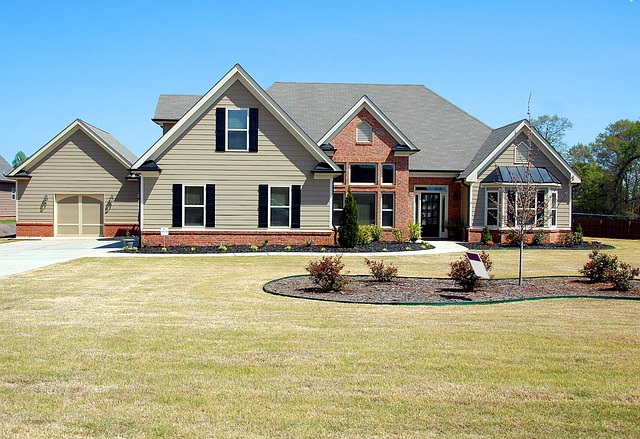To be eligible for an Executive Condominium (EC) in Singapore, applicants must be Singapore citizens or permanent residents with no additional residential property ownership. A five-year waiting period applies to those who have previously owned a public housing flat. EC buyers are subject to income ceilings and the Total Debt Servicing Ratio (TDSR) to ensure affordability. After fulfilling the Minimum Occupation Period (MOP) of five years, EC units can be sold on the open market without restrictions. Prospective buyers must navigate a detailed application process through the Housing & Development Board (HDB), which includes balloting if necessary. It's important to consult the latest guidelines from the CPF Board and HDB for accurate eligibility criteria, as rules may change over time. Understanding Executive Condo Eligibility is key for potential buyers looking to enter the dynamic Singapore property market and make informed decisions in line with their long-term housing goals.
Singapore’s property market offers a diverse range of housing options, with the Executive Condominium (EC) scheme standing out as an attractive choice for many residents. Understanding the EC eligibility requirements is crucial for Singaporeans considering this form of living. This article delves into the specifics of EC housing, outlining key eligibility criteria, the implications of the five-year Minimum Occupation Period (MOP), and potential upgrading pathways. Whether you’re a first-time homebuyer or looking to move from a public housing flat, this guide will equip you with the necessary knowledge to navigate the EC application processes. With insightful sections on eligibility, MOP implications, and more, including a comprehensive FAQ, prospective buyers can confidently explore the benefits of owning an Executive Condo in Singapore.
- Understanding Executive Condominium (EC) Housing in Singapore: A Guide for Prospective Buyers
- Key Eligibility Criteria for Applying for an EC in Singapore: What You Need to Know
- The 5-Year MOP and Its Implications for EC Owners in Singapore
- Maximizing Your Housing Options: EC Eligibility and Upgrading Pathways for Singaporeans
- Frequently Asked Questions on Executive Condo (EC) Eligibility and Application Processes in Singapore
Understanding Executive Condominium (EC) Housing in Singapore: A Guide for Prospective Buyers

When exploring the Singapore property market, understanding the nuances of Executive Condominium (EC) eligibility is crucial for prospective buyers. Unlike public housing or private condominiums, ECs are a hybrid housing option designed for the sandwich class, offering a blend of affordability and benefits similar to those living in private properties. Singaporeans interested in purchasing an EC must meet specific criteria set by the Housing & Development Board (HDB). Principally, applicants must not own any residential property at the time of application, which includes existing flat owners who have disposed of their flats but whose names are still on the HDB records as at the date of transaction. Additionally, the monthly household income ceilings must be observed; these guidelines ensure that ECs remain accessible to those in the lower to middle-income brackets.
Furthermore, families looking to upgrade from their HDB flat to an EC must have disposed of their flat, or sold it within a stipulated period after collecting the keys. For single individuals who have previously owned an HDB flat, they are only eligible to apply for an EC five years after the disposal of their previous flat. These conditions prevent speculative profiteering and maintain the affordability of ECs for genuine first-time homeowners. Prospective buyers should also be aware that there are restrictions on reselling ECs within the initial 10 years of purchase. After satisfying the minimum occupation period, the unit can be sold to either Singapore citizens or permanent residents. This unique structure makes ECs an attractive yet stable long-term investment. Understanding these eligibility requirements is essential for prospective buyers who wish to navigate the EC market with confidence and clarity.
Key Eligibility Criteria for Applying for an EC in Singapore: What You Need to Know

When considering the application for an Executive Condominium (EC) in Singapore, understanding the key eligibility criteria is paramount for Singaporeans. As of the latest updates, applicants must be either Singapore Citizens or Permanent Residents to qualify for purchasing an EC. Additionally, applicants must not own any residential property at the time of application, and both their current flat and the new EC must be sold upon satisfying the criteria for upgrading to a private residence, typically after five years. For those living with family, only one flat can be owned at any time. This policy is designed to ensure that ECs are predominantly for young couples or families looking to own property without the immediate restriction of living in a HDB flat. Furthermore, applicants must meet the income ceilings and total debt servicing ratio (TDSR) as stipulated by the financial institutions. These criteria are in place to maintain the affordability and accessibility of ECs for eligible individuals or families. Prospective buyers should carefully review these requirements before proceeding with their application, as compliance is essential for successful EC eligibility. It’s advisable to consult the latest guidelines from the CPF Board and Housing & Development Board (HDB) to ensure all conditions are met.
The 5-Year MOP and Its Implications for EC Owners in Singapore

For Singaporeans considering the purchase of an Executive Condominium (EC) as their first home, understanding the Minimum Occupation Period (MOP) is crucial to their eligibility. The MOP for an EC is five years from the date the keys are collected or the unit is delivered, whichever comes first. This requirement is a key aspect of the public housing policies in Singapore, designed to ensure that these units primarily serve as homes for families over a significant period. Once the MOP is fulfilled, the flat within the EC will be able to be sold on the open market without any restrictions. During the MOP, however, owners are not permitted to sell their EC to non-citizens or to sublet the entire unit to individuals who are not Singaporeans or Permanent Residents. This policy aims to protect the interests of first-time homeowners and maintain the stability of the neighborhoods where these Executive Condos are situated. For those who adhere to the MOP, owning an EC offers a versatile housing option that caters to the needs of young families looking for a step up from HDB flats, with the potential to benefit from capital appreciation post-MOP completion. Understanding and respecting the MOP is essential for Singaporeans seeking to invest in an EC, as it directly impacts their future eligibility and financial prospects associated with their property.
Maximizing Your Housing Options: EC Eligibility and Upgrading Pathways for Singaporeans

Singaporeans seeking to maximize their housing options often consider the benefits of an Executive Condominium (EC). To be eligible for an EC, certain conditions must be met, which are distinct from those for public or private housing. As per the latest guidelines, applicants must either be Singapore citizens or a mix of Singapore citizens and permanent residents with at least 85% being citizens. Additionally, applicants must not own any residential property at the time of application, and their total household income should not exceed S$14,000. This income ceiling is designed to ensure that ECs remain accessible to middle-income families. Furthermore, they should have not applied for, purchased, or submitted a form for a flat under the Housing & Development Board (HDB)’s Fresh Application Scheme within the past 30 months.
Beyond initial eligibility, Singaporeans also have upgrading pathways available to them once they acquire an EC. After meeting the minimum occupation period of five years, EC owners can sell their unit in the open market, unlocking the potential for significant capital gains. Alternatively, upon satisfying the criteria, they may opt to buy a resale HDB flat, which provides another avenue for downsizing or upgrading as their family needs change. The HDB’s Multi-Generation Flat (MGF) scheme also allows extended families to live under one roof, catering to the evolving housing needs of Singaporeans. These pathways offer flexibility and a strategic approach to long-term housing planning for those eligible for Executive Condos. Understanding these requirements and pathways ensures that Singaporeans can make informed decisions when considering an EC as part of their property portfolio.
Frequently Asked Questions on Executive Condo (EC) Eligibility and Application Processes in Singapore

When considering the purchase of an Executive Condominium (EC) in Singapore, understanding the eligibility requirements is crucial for applicants. Prospective buyers often have questions regarding who qualifies to buy an EC, the duration they must meet before purchase, and the application process. Here are some frequently asked questions on EC eligibility and the steps involved:
1. Eligibility Criteria: Singaporeans or permanent residents who are applying for an EC must satisfy certain conditions. They must either be first-time applicants, or they must have sold their previous flat in the open market at least 30 months before the application for a new EC. Additionally, applicants must not own any other subsidized housing property or private residential property.
2. Application Process: The process of applying for an EC involves several key steps. After confirming eligibility, interested parties should select an EC unit and submit an application to the relevant housing authority. The application process includes a balloting system where applicants are selected based on a draw if there are more applications than available units. Successful applicants then proceed with the necessary financial procedures, including obtaining a loan from a financial institution. The entire application and approval process can be complex, so it is advisable to familiarize oneself with the Housing & Development Board (HDB) guidelines and steps beforehand.
For Singaporeans who meet the above criteria, purchasing an EC offers an affordable alternative to private properties, allowing them to enjoy the benefits of condominium living without compromising on price. It’s important for potential buyers to stay updated with the latest regulations as eligibility rules can evolve over time. Prospective applicants should refer to the HDB website or consult with a housing officer for the most current information and personalized guidance through the application process.
In conclusion, navigating the Executive Condo (EC) eligibility requirements for Singaporeans is a critical step for those considering this type of housing. The guidelines are designed to ensure a balanced and sustainable property market, offering a pathway for first-time homeowners to upgrade from public to private housing. Key considerations such as the 5-year Minimum Occupation Period (MOP) post-purchase play a significant role in the EC ownership journey. Prospective buyers must familiarize themselves with these criteria to make informed decisions, which can be achieved through understanding the comprehensive guide provided, FAQs, and potential upgrading pathways available. By adhering to the Executive Condo eligibility standards, Singaporeans can confidently explore this vibrant segment of the housing market, paving the way for a stable and rewarding home-ownership experience.
